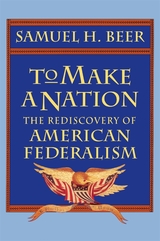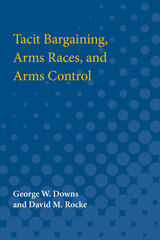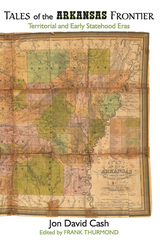
Federalism is regarded as one of the signal American contributions to modern politics. Its origins are typically traced to the drafting of the Constitution, but the story began decades before the delegates met in Philadelphia.
In this groundbreaking book, Alison LaCroix traces the history of American federal thought from its colonial beginnings in scattered provincial responses to British assertions of authority, to its emergence in the late eighteenth century as a normative theory of multilayered government. The core of this new federal ideology was a belief that multiple independent levels of government could legitimately exist within a single polity, and that such an arrangement was not a defect but a virtue. This belief became a foundational principle and aspiration of the American political enterprise. LaCroix thus challenges the traditional account of republican ideology as the single dominant framework for eighteenth-century American political thought. Understanding the emerging federal ideology returns constitutional thought to the central place that it occupied for the founders. Federalism was not a necessary adaptation to make an already designed system work; it was the system.
Connecting the colonial, revolutionary, founding, and early national periods in one story reveals the fundamental reconfigurations of legal and political power that accompanied the formation of the United States. The emergence of American federalism should be understood as a critical ideological development of the period, and this book is essential reading for everyone interested in the American story.

Lyndon Johnson heralded a “new federalism,” as did Ronald Reagan. It was left to the public to puzzle out what such a proclamation, coming from both ends of the political spectrum, could possibly mean. Of one thing we can be certain: theories of federalism, in whatever form they take, are still shaping our nation. The origin of these theories—what they meant to history and how they apply today—becomes clear in this book by one of our most distinguished writers on political thought.
The great English republicans of the seventeenth century appear in this story along with their American descendants, who took the European idea of a federal republic and recast it as new and unique. Samuel Beer’s extraordinary knowledge of European political thought, displayed especially in discussions of Thomas Aquinas and James Harrington, allows him to show at every turn the historical precedents and the originality of American federalism in theory and practice. In deft comparisons with Hume, Burke, Blackstone, and Montesquieu, the familiar figures of Madison and Hamilton emerge with new substance and depth, while some who would seem fully known by now, such as Ben Franklin, reveal unsuspected dimensions, and others, such as James Wilson, are lifted from obscurity.
Beer uses this history to highlight the contrast between the nation-centered federalism of the framers of the Constitution and the state-centered federalism of its opponents. His concern is not only with historical origins but, more important, with a conflict of ideas which reaches far into our history and continues on to this day. The result is the clearest articulation ever given of the provenance and purpose of the ideas of nationalism and federalism in American political philosophy. A masterpiece of historical and political analysis, this book provides an innovative interpretive framework for understanding democracy and the American Constitution.
READERS
Browse our collection.
PUBLISHERS
See BiblioVault's publisher services.
STUDENT SERVICES
Files for college accessibility offices.
UChicago Accessibility Resources
home | accessibility | search | about | contact us
BiblioVault ® 2001 - 2025
The University of Chicago Press









